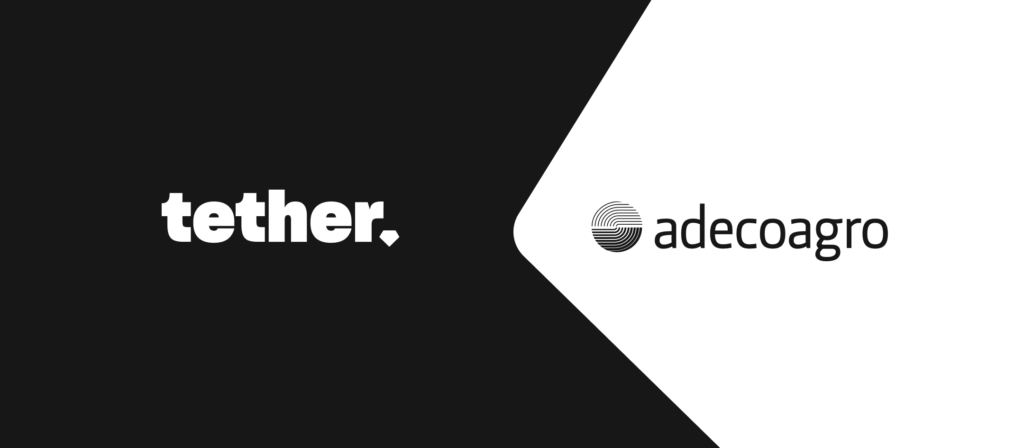The failure of FTX/Alameda is likely to be a watershed moment in the history of the cryptocurrency industry. In addition to being one of the largest financial failures, it has set off a daisy chain of leveraged failures cascading through the industry.
While there is still more to the story, and likely more counterparties who will emerge in the coming weeks, Tether wants to address one topic which has come to the surface following the failure of FTX.
It is well-known that Alameda was one of the larger issuers of USD₮, and due to this there has been ample discussion of whether the failure of Alameda represents a risk to Tether.
The short answer is: No
The long answer is as follows-
Tether Issuance
What does it mean to be a large issuer of USD₮? If someone issues a large amount of USD₮ and goes bankrupt does that expose Tether's collateral?
USD₮ is issued when institutional parties send USD to Tether and Tether issues USD₮ on a 1:1 basis corresponding to the amount of USD sent to Tether. Tether then converts this USD into reliable, liquidity and conservative collateral ( US Treasuries, etc).
All USD₮ is fully collateralized by Tether's reserves and every USD₮ can be redeemed 1:1 with USD.
What does it mean that Alameda issued USD₮? It means they sent Tether USD, and Tether issues USD₮. Those reserves are still in Tether's possession; they are not on Alameda's balance sheet. The collateral backing Alameda's USD₮ is not on Alameda's balance sheet.
What can Alameda do with their USD₮? Their only option is to redeem any USD₮ they have for USD via Tether's redemption facility. This is the same as any other USD₮ holder around the world.
Lending, Leverage and Liabilities
Did Tether lend Alameda any USD₮ or other funds? No, Tether has no outstanding loans of USD₮, of Tether's reserves, or of any other funds whatsoever.
The main problem countless other companies are facing is that they recklessly lent Alameda various assets relying on extremely illiquid collateral. Since Alameda cannot repay those loans at this time, those companies have a hole on their balance sheet. This is not how USD₮ issuance works, and is not behavior Tether engaged in with Alameda in any way.
Is lending part of the USD₮ issuance cycle ever?The only time Tether engages in lending is, as the example of Celsius shows, when Tether has lent USD₮ to select customers based on over-collateralization with extremely liquid assets. We believe the approach of many lenders in this industry has been reckless, lending huge quantities of money, and accepting FTT (and other illiquid assets) and pinky swears as collateral.
This is further validated by how despite the sudden unwinding of Celsius, Tether’s operations were not disrupted. In fact, even during the highly volatile conditions of Terra’s collapse, Tether was able to liquidate Celsius’s collateral with such precision that Tether was even able to return some of the collateral.
What about leverage? Leverage played a key role in the dramatic unwinding of FTX. Does Tether engage in any leverage activity, leverage trading or collateralized borrowing against Tether's reserves?
No.
Tether does not take highly leveraged directional bets on digital assets as part of its operations.
Solana Suspensions
Binance recently temporarily suspended USDC and USD₮ deposits on the Solana Blockchain. OKX did as well. Why is this? Is there a risk inherent to Solana USD₮?
No
USD₮ issued on Solana is the same as USD₮ issued on any other chain. The token simply represents a claim to $1 of Tether's reserves and collateral. Alameda's heavy involvement in Solana doesn't impact the underlying dynamics of how USD₮ functions and USD₮ issuance works whatsoever.

The move to suspend USD₮ deposits on these exchanges is likely just due to the heavy connections between FTX, Alameda, and Solana. If holders of USD₮ want to redeem USD₮ with Tether, they still can. USD₮ on Solana is equivalent to USD₮ on any other Blockchain, it is not issued by Solana and is not reserved by Alameda or FTX.
8 Years of Stability
Tether has been designed to withstand staggering volatility in cryptocurrency markets. While the FTX situation has been unique in many ways, it does not represent a threat of a risk to Tether or USD₮.
Tether continues to function normally and process redemptions whenever they are requested. Tether has no exposure to FTX or Alameda (and zero exposure to Genesis as well).
We look forward to continuing to provide investors with a reliable tokenized dollar as they navigate these challenging times.








